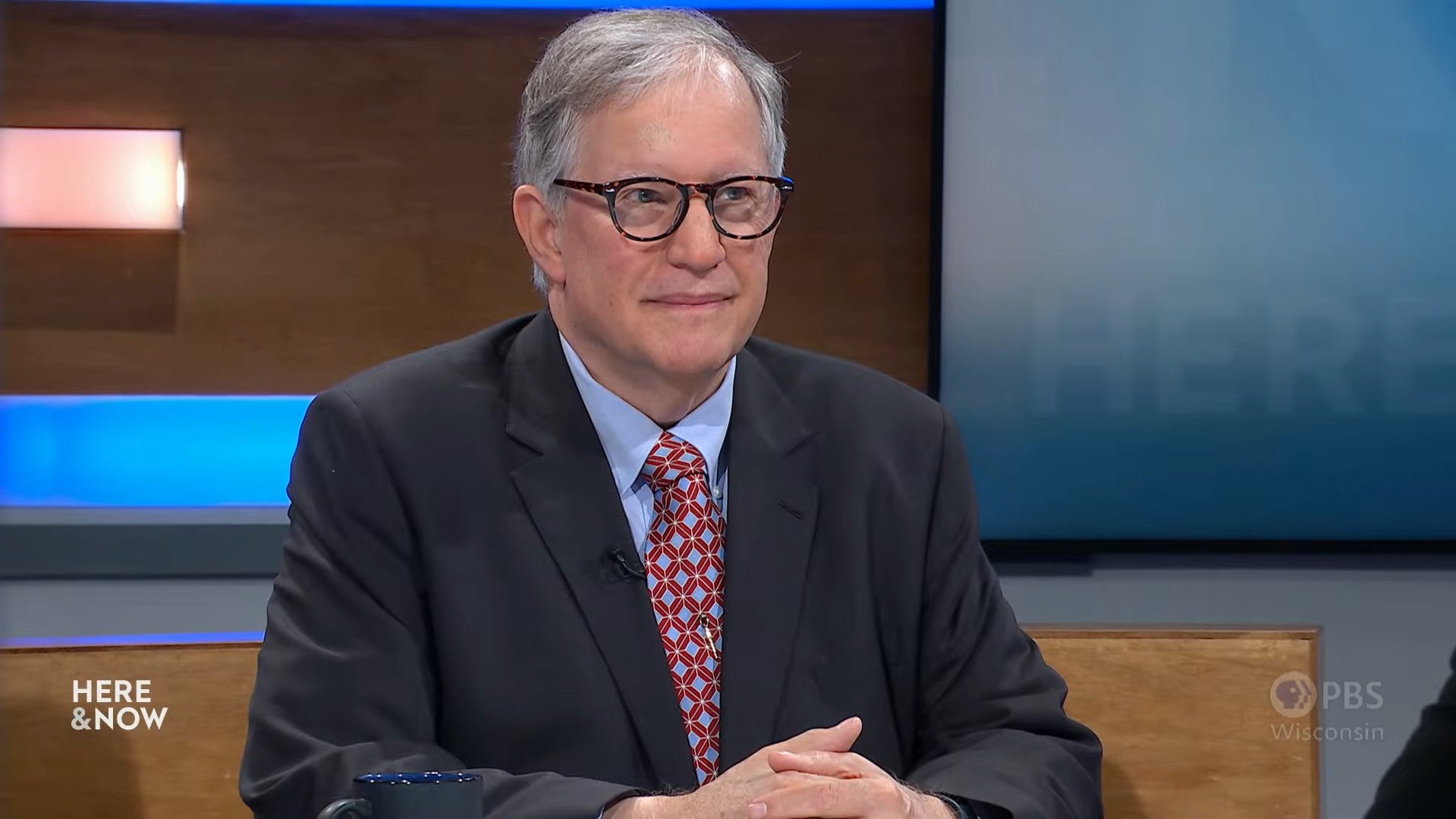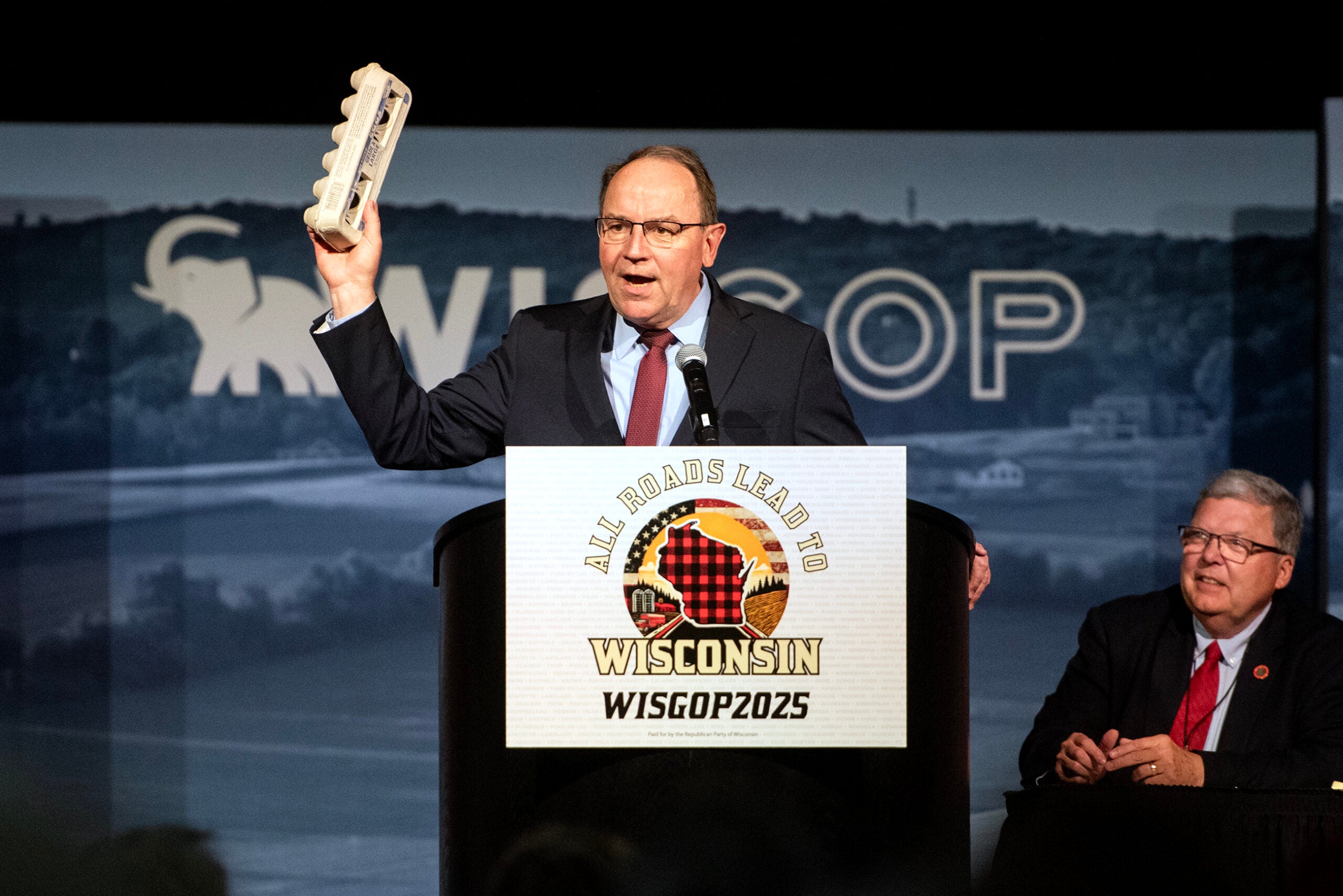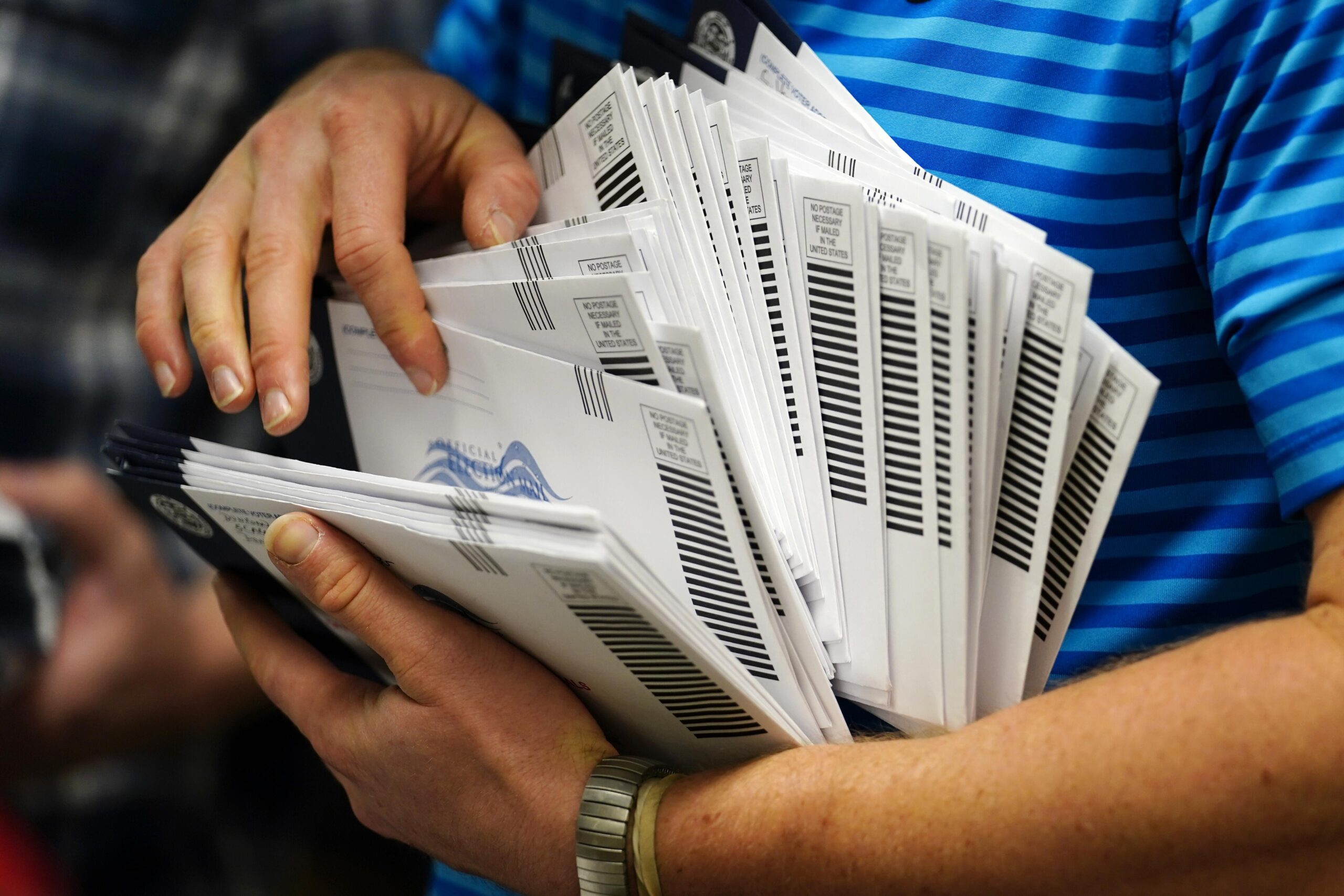Voters in the 7th Congressional District can expect to encounter protective barriers, strict limits on the number of people at polling places and other protective measures as they head to the polls for Tuesday’s special election.
“The clerks in our district are taking the safety of the voters extremely seriously,” Oneida County clerk Tracy Hartman said Friday on WPR’s “The Morning Show.”
Besides adding clear-plastic partitions between voters and poll workers and limiting numbers in polling locations, clerks will offer hand sanitizer stations and make pens single use, one per voter.
News with a little more humanity
WPR’s “Wisconsin Today” newsletter keeps you connected to the state you love without feeling overwhelmed. No paywall. No agenda. No corporate filter.
Many of these practices were put in place statewide for Wisconsin’s April 7 presidential primary and state Supreme Court elections. Hartman said some clerks have used the last month to implement new safety measures.
“We took April, we learned from it and we’ve improved upon it,” she said. “Overall, at least in Oneida County, it was a positive experience and we kept the voters as safe as possible.”
Now, clerks around the northern Wisconsin district are gearing up to do it again. The special election pits Republican state Sen. Tom Tiffany against Democratic Wausau School Board President Tricia Zunker. The election was called in 2019 after the resignation from Congress of Republican U.S. Rep. Sean Duffy.
Wisconsin had a national spotlight on it for the April 7 elections as it became the first state to host a U.S. presidential primary amid nationwide measures to slow the spread of COVID-19. In Milwaukee and Green Bay in particular, the number of polling places were reduced dramatically, leaving hundreds to wait in hours-long lines.
Those potentially dangerous long lines weren’t present in the 7th Congressional District, which is mostly rural and which includes much of central Wisconsin and the Northwoods, as well as the northwestern part of the state.
About 250 National Guard members will assist in the administration of the election. They’ll wear civilian clothing at the polls.
“They will greet and check-in voters, monitor voting equipment, assist with keeping social distance and help sanitize,” said Brig. Gen. Robyn Blader, in a release from the National Guard. “Like other volunteer workers, they do not certify the results.”
Guard members will receive training on Sunday and will be released from active duty orders on Wednesday.
More than 1,400 Nation Guard poll workers assisted in the April 7 elections, which were the subject of controversy and political battling. In the days before that election, the state Supreme Court and U.S. Supreme Court overturned an order by Gov. Tony Evers that would have postponed in-person voting.
According to the latest state figures, 67 people were infected with COVID-19 after voting that day, though direct causal links aren’t clear in all of those cases because some voters had other potential exposures.
The deadline for registered voters to request absentee ballots was Thursday. On Monday, the Wisconsin Elections Commission posted data showing that 112,892 people in the district had requested absentee ballots; 110,024 ballots had been sent out; and 76,259 had been returned.
In the April elections, voters in the 7th Congressional District cast about 107,000 absentee ballots, and a total of about 201,000 voted in the district, meaning a little less than half of voters went to the polls on election day.
There are about 700 municipalities in the district.
Hartman said voters are encouraged to wear masks when they come to vote. The Centers for Disease Control and Protection recommend Americans wear masks in public to help slow the virus’ spread.
The state on May 1 shipped additional supplies of hand sanitizer, wipes, spray bottles and personal protective equipment to the counties in the 7th Congressional District, according to the Wisconsin National Guard release.
Wisconsin Public Radio, © Copyright 2025, Board of Regents of the University of Wisconsin System and Wisconsin Educational Communications Board.






